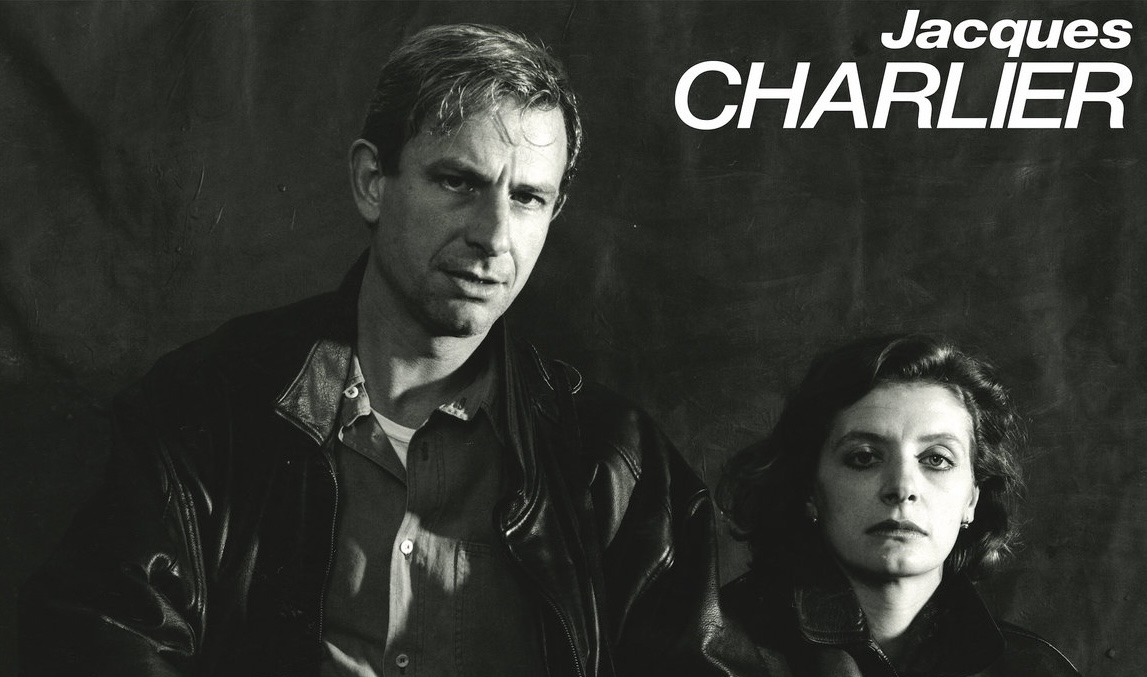Jacques Charlier, Art In Another Way
Lukewarm was the water
Reissued from cassettes recorded in the 1980s by Jacques Charlier as "Chansons Tristes", "Chansons Régressives" and "Chansons Idiotes", the double album Art In Another Way was released on the Séance Centre and Musique Plastique labels in 2022.
One of the first things I felt when listening to Jacques Charlier's album was comfort. But not the comfort of the "comfort zone", from which one should seek to emerge as often as a smoking room, but rather the comfort one becomes aware of when drinking lukewarm water. There was something of the communion, even contamination, which reminded me of the sensation I felt one summer drinking the last sip of lukewarm water from a bottle, that of becoming one with the water, which was somehow at my temperature. Jacques Charlier creates rhythmic loops whose minimalism provides the backdrop for a curious lightness. There's something of spectacle or puerility in "Crépuscule", for example, from which sounds of machinery and collages of guitar or synth effects emerge. "L'Amour Dans Les Chansons" sends shivers down my spine - it's about pleasure but also stupefaction.
Jacques Charlier creates rhythmic loops whose minimalism seems to provide the backdrop for a curious lightness. There's something on the order of showmanship or clowning in "Crépuscule", for example, from which emerge sounds of machinery and collages of guitar or synth effects. "L'Amour Dans Les Chansons" sends shivers down my spine - it's about pleasure, but it's also about amazement.
“There is less love than that in love songs“ voices are singing with distance. By denigrating the medium they use to talk about their love, Marine Doutreleau and Jacques Charlier testify to the double distance they have taken from it. But the use of song allows the return, the reinscription of reality in art, and the passage between the different realities of their love. Is that it, the feeling of osmosis?
As with Duchamp's ready-mades questioning the possibility of making art without art, here Charlier makes love songs that aren't or aren't any more. Ambivalence always prevails, and the balance oscillates between snatches of conversation that one imagines blown between two cigarette puffs in front of the local club in Liège and mystical references to the planet Orion that recall French underground rock's 70s love of science fiction. In this respect, "Perki Show", which combines scents of automatic writing and real-life moments, is one of the most jubilant tracks, taking us into treasure troves of unexpected, new beauty.
I'm a little less of a fan of "Samba", with its dream of a romantic getaway in the sun that turns into "here's a song for you that doesn't cost a penny", but at the same time, between the crisis and the status of artist that can be more than precarious, I can understand the lease. At the same time, in France, Etienne Daho arrived with the cult classic "Week-end à Rome" (1984), which gives me the same kind of thrill if I listen to it at the right moment, but whose dream of soap bubbles ends up weighing on me "Florence, Milan if there's time". As I find myself humming "Samba", the contamination takes effect. It also heralds the beginning of a phenomenon of decomposition that will help to replace that of comfort.
Temporality disappears, and measures lengthen or settle. The refrain of the love song gives way to the solemn, abstract melodies of "Passing Time", the space-rock corners with soaring arpeggios of "Tout va bien", or the tight bass line that never wants to take off of "Un chat dans mon lit". All this creates an unpredictable ambience, like a negative of the familiar comfort encountered at the start. A ghostly aura even develops in "Check-up", where it's no longer the medium under scrutiny but Charlier himself, against a backdrop of scathing chords. Underneath a vaguely disquieting air, the path becomes slippery.
Like the track " Hiroshima mon amour " by synth-pop band Poésie Noire, which makes explicit reference to the world destroyed in the wake of the atomic bombing disaster, "Top" spreads a whiff of ruins with its robotic exclamations doubled by an echoing "Top... Top..." "Coiffure... Coiffure..." giving the effect of a radio signal interspersed with crackles or never-ending remnants of humanity loops.
Stripped of their human voices, the following tracks allow us to witness a decomposition of Charlier's musical vocabulary. The chords of "Tout va bien" are only pale copies or reappearances of "Check-up", the deep, sensual voice interspersed with silences until it becomes a rattle.
If everything seems to be falling apart, it's not a fall, but rather an awakening. Since the song didn't allow us to express the full spectrum of emotions, why not try textures, space and rhythm? This reversal of comfort invites movement and rebirth. Without a hint of mawkishness, Marine Doutreleau's haloed incantations in "Morning" are uplifting. The distant voices of Art in Another Way invite us to distance ourselves. To be moved, the better to love ourselves. An ode to DIY.
Translated into English by DeepL with TranslatePress
